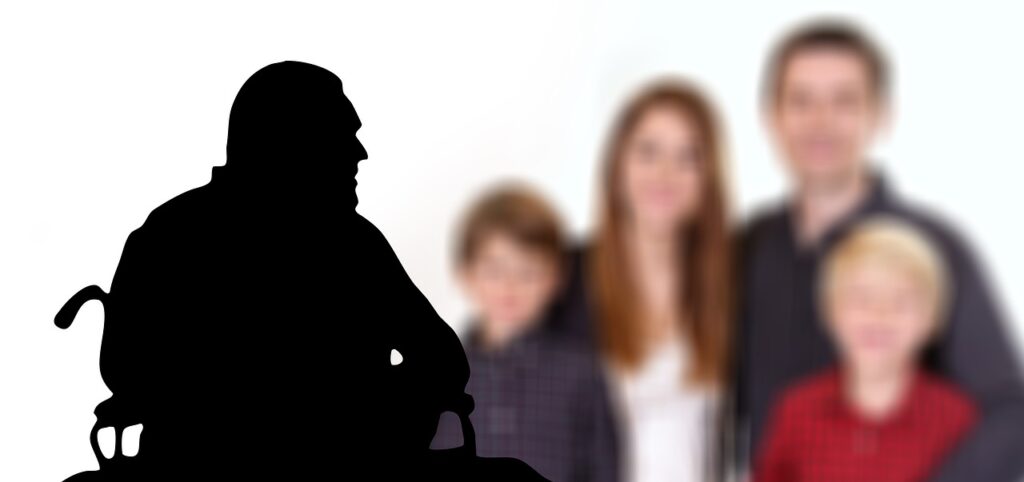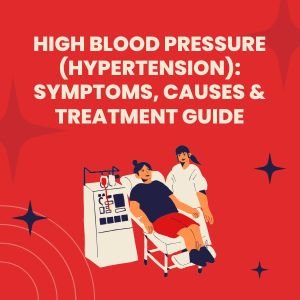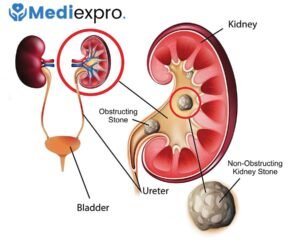DEFINITION

Dementia encompasses with a range of cognitive impairments, including memory loss and communication difficulties, which arise from various underlying neurodegenerative conditions and brain disorders. It is not a specific disease but rather a broad term that encompasses symptoms of cognitive decline involving memory, communication, and cognitive function.
SYMPTOMS
The following are potential signs of cognitive impairment:
1. Recent memory loss: Indicated by repetitive questioning and difficulty retaining new information.
2. Difficulty completing familiar tasks: Inability to perform routine activities such as preparing meals or making drinks.
3. Problems with communication: Struggling with language, including forgetting common words and experiencing language difficulties.
4. Disorientation: Getting lost in familiar areas or having difficulty navigating known routes.
5. Impaired abstract thinking: Difficulty with complex mental tasks, such as managing finances.
6. Misplacing items: Forgetting the location of everyday items like keys or wallets.
7. Mood and personality changes: Abrupt and unexplained shifts in mood, attitude, or behavior.
8. Loss of initiative: Decreased motivation and a lack of interest in initiating activities.
TYPES OF DEMENTIA
There are several types of dementia, including
# Alzheimer’s disease is identified by the presence of “plaques” between dying brain cells and “tangles” within the cells, both caused by protein abnormalities. This results in a decrease in nerve cells and connections, leading to progressive shrinkage of the brain tissue in individuals with Alzheimer’s.
# Dementia with Lewy bodies is a neurodegenerative condition that is linked to abnormal structures of the brain. The brain changes that involve a protein called alpha-synuclein.
# Mixed dementia occurs when a person is diagnosed with two or three types of dementia at the same time. For example, an individual may exhibit symptoms of both Alzheimer’s disease and vascular dementia simultaneously.
# The presence of Lewy bodies also marks Parkinson’s disease. Although Parkinson’s is often considered a movement disorder, it can also result in symptoms.
Specific types of uncontrolled movements characterize Huntington’s disease but also include dementia.
# Frontotemporal, also known as Pick’s disease.
CAUSES OF DEMENTIA
However, it is not known if it causes brain cell death or brain cell death causes dementia.
REVERSIBLE
v. Medication interactions
v. depression
v. vitamin deficiencies
v. Thyroid abnormalities.
IRREVERSIBLE
v. Vascular dementia (also called multi-infarct dementia)—Cerebrovascular disease, such as stroke, can lead to brain cell death due to impaired blood flow, resulting in oxygen deprivation for the brain cells.
v. Injury: Post-traumatic dementia is directly related to brain cell death caused by injury.
v Repetitive trauma-, such as that received by sports players, has been linked to certain dementias appearing later in life, such as punch-drunk syndrome in boxers
v. Alzheimer’s disease
v. Normal pressure hydrocephalus occurs when an excess amount of cerebrospinal fluid accumulates in the brain.
v. Posterior cortical atrophy resembles changes in Alzheimer’s disease but in a different part of the brain.
v. Down syndrome increases the likelihood of young-onset Alzheimer’s
TREATABLE
v. Head injury
v. Stroke
v. Brain tumor.
v. Prion diseases—for instance, CJD (Creutzfeldt-Jakob disease).
v. HIV infection—How the virus damages brain cells is not sure, but it is known to occur.
TREATMENT
- Careful nursing
- Prevention of domestic accident
- Nutritional balance
- Infection management
- Treatment of all co-morbidity




